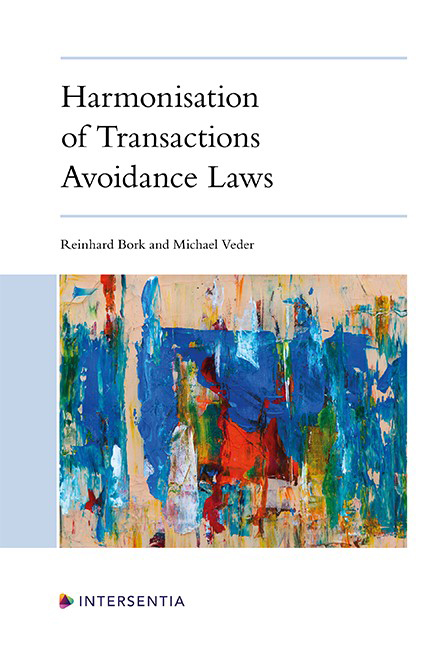Germany
Published online by Cambridge University Press: 26 May 2022
Summary
PART 1. DETAILS OF YOUR NATIONAL TRANSACTIONS AVOIDANCE LAW
I. SYSTEM
Question 1. Is your transactions avoidance law (for terminology cf. Introduction at C.) part of insolvency law or is it in parts or as a whole incorporated in other fields of law (e.g. general civil law, commercial law, company law)?
German transactions avoidance law is entirely incorporated in insolvency law (§§129 – 147 Insolvenzordnung [hereafter: InsO]. 1
Question 2. Are the rules on transactions avoidance law in your jurisdiction the same for entrepreneurs/legal entities and consumers/natural persons? If not, please explain the differences and take it into account when completing this questionnaire.
Yes, transactions avoidance law applies to all debtors, no matter whether a natural or a legal person or whether a consumer or an entrepreneur.
Question 3. Are the rules on transactions avoidance law in your jurisdiction the same for liquidation and restructuring proceedings (if any)? If not, please explain the differences and take it into account when completing this questionnaire.
Yes, in Germany, there is currently only one single set of insolvency proceeding rules which apply to all debtors no matter whether the proceedings aim at liquidation or restructuring. Hence, transactions avoidance law covers liquidation as well as restructuring proceedings.
Question 4. Are the rules on transactions avoidance law in your jurisdiction the same for debtor-in-possession proceedings (if any)? If not, please explain the differences and take it into account when completing this questionnaire.
Yes, transactions avoidance law is also applicable in debtor-in-possession proceedings, no matter whether they aim at liquidation or restructuring. However, divergent from other debtor-in-possession rules, it is the task of the Insolvency Practitioner (monitor, “Sachwalter”) to enforce transactions avoidance (§280 InsO).
Question 5. Does your transactions avoidance law distinguish various avoidance grounds (e.g. preferences, transactions at an undervalue, etc.) or is there only one general clause for all kinds of transactions?
Yes, there are eight avoidance grounds (§§130 – 137 InsO).
Question 6. If the answer to Question 5 is “yes”: does your law contain special rules for the following kinds of transactions (for details, see below at Question 12 et seq.):
- Type
- Chapter
- Information
- Harmonisation of Transactions Avoidance Laws , pp. 835 - 860Publisher: IntersentiaPrint publication year: 2022

